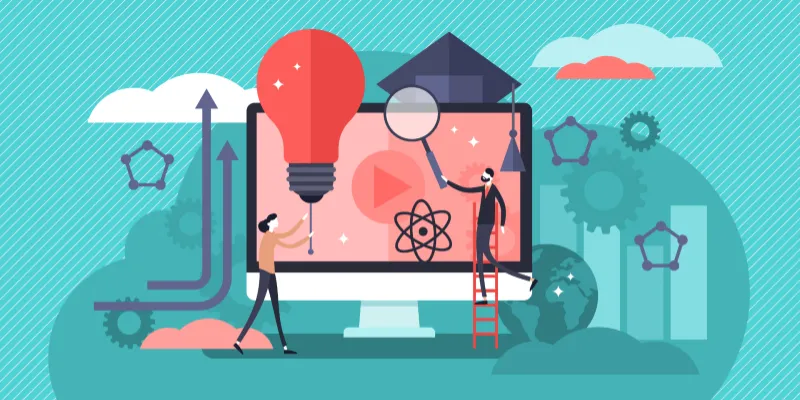The future of education is immersive and personalised
With technologies like artificial intelligence, virtual reality, robotics, and augmented reality making for a blended, immersive learning experience, education is set to break all the barriers that rigid systems adopted in the past.
Forty-one years since British rock-band Pink Floyd belted out an iconic ‘protest’ song, it seems like the curtains have come down on the phenomenon that they had raged against. The chart-busting single Another Brick in the Wall with its provocative opening lines, “We don’t need no education. We don’t need no thought control...” served as a critique of rigid schooling systems that mixed learning with complete control.
At the dawn of a new decade, it is heartening to see that the scenario the song depicted doesn’t find resonance in today’s top global education systems. Schools, colleges, and other educational institutions the world over are geared towards making learning free of hierarchy, while keeping it engaging, meaningful, and fun. They are also conscious of the UN Sustainable Development Goal 4—ensuring inclusive and equitable quality education while promoting lifelong learning opportunities for all.

Let us take a closer look at how these aspirations are set to develop further.
Experience overtakes possessions
If the ambition to own things was the hallmark of a good life after the Industrial Revolution, a search for the meaning of life takes precedence in an Industry 4.0 scenario. Research conducted at multiple universities supports this trend.
A Cornell University study suggests that the desire for possessions is giving way to something else—a search for contentment and meaning by experiencing rather than owning things. This has important ramifications for the education sector. Tomorrow’s workforce will be less inclined to follow the career paths of their parents’ generation. They will also seek to learn differently and search for newer, creative work to achieve more rounded lives.
Immersive learning arrives
Players in the education space will have to provide learning modules that enable experiential instead of thematic learning. Schools and universities will also have to tweak syllabi and revisit modes of instruction to include interactive, ‘hands-on’ components.
Students will gain access to new technologies, such as digital media simulations, to help them get first-hand knowledge of topics, concepts, and situations. And educational institutions will have to double up as a bridge to the workplace by introducing opportunities to access immersive learning modules.
From outcome to process: learning becomes lifelong
The next trend is the transformation of learning from a generic, one-time investment into a hyper-personalised, lifelong process. Just as institutions and companies are seeking to reinvent themselves, stakeholders in the education vertical will also have to ensure that learning is up-to-date and customised.
Students should be enabled to access next-generation adaptive learning[1] tools that accelerate learning. Collaboration with alumni should supplement classroom learning.
AI enriches learning
The fourth major development I see picking up pace in the education sector is a further expansion in the applications of AI. I expect that AI will be increasingly deployed in the class to expedite administrative tasks, enabling teachers to gain time with students for focused mentoring. It will also step in as a ‘teaching assistant’ to help students improve their conceptual understanding of abstract subjects such as math as is being done at an elementary school in New Jersey.
Blended learning triumphs
The coming years will also see a spike in blended learning. This will mean more opportunities for students to combine online, in-person, and tech-enabled offline learning programmes that leverage virtual reality (VR), artificial intelligence (AI), and gamification. Schools of the future will become a truly ‘happy place’ for students with a combination of smart classes, one-on-one tutoring and AI-powered lessons.
As the ‘flat world’ continues to incentivise collaboration, immersive experiences and personalised learning, players in the education space will have to align their solutions and services to meet the future learner’s needs.
(Edited by Evelyn Ratnakumar)
(Disclaimer: The views and opinions expressed in this article are those of the author and do not necessarily reflect the views of YourStory.)








